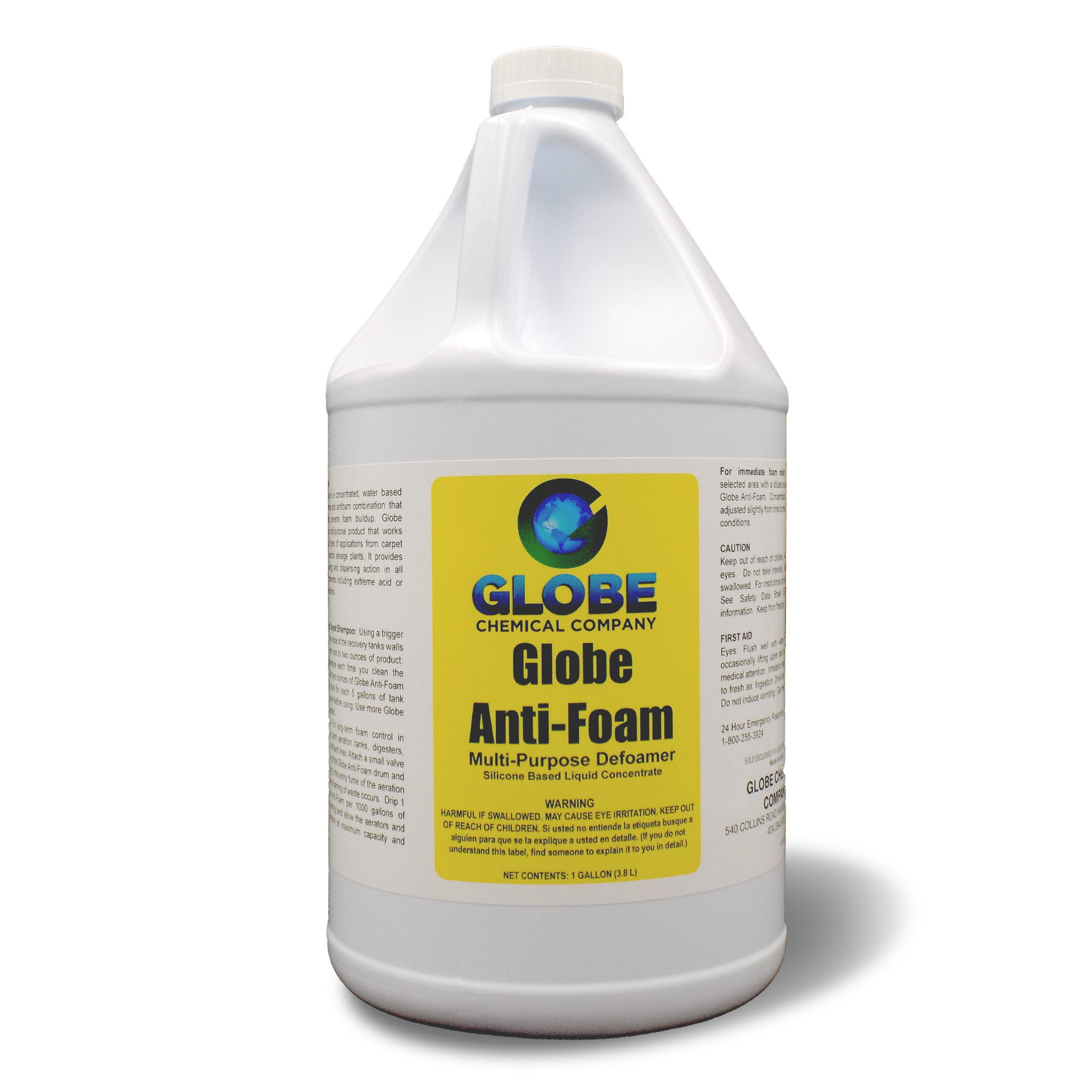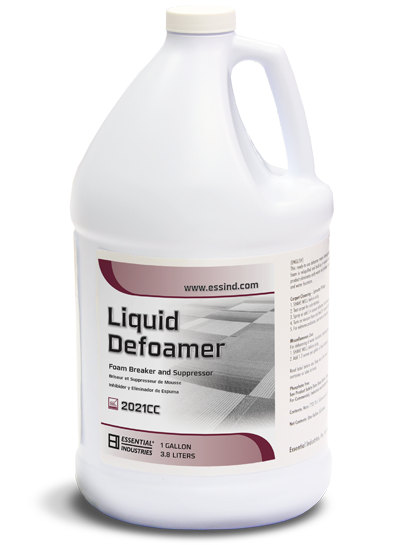The Importance of Using a Chemical Defoamer in Numerous Applications
The application of chemical defoamers is an important consideration throughout several markets, including food processing, wastewater therapy, and drugs. These agents play a crucial duty in mitigating foam formation, which can prevent effectiveness and compromise item high quality.
Understanding Foam Development
Foam formation is a complex physical sensation that happens when gas bubbles are trapped within a fluid matrix, resulting in the production of a steady structure. This process can be influenced by numerous elements, consisting of the thickness of the liquid, the surface area tension at the gas-liquid interface, and the visibility of surfactants. Surfactants lower the surface area tension, advertising bubble creation and stablizing, which often brings about the development of foam in many industrial procedures.
Foams are commonly run into in applications such as food production, wastewater treatment, and chemical manufacturing. In these contexts, foam can act as an insulator, disrupt blending procedures, or hinder the performance of equipment. The security of foam is determined by the balance between the pressures acting to stabilize the bubbles and those that advertise their collapse.
Understanding the auto mechanics of foam formation is critical for efficiently handling its presence in different systems. By comprehending the underlying concepts, sectors can develop strategies to alleviate undesirable foaming, consequently improving functional effectiveness and product high quality. This fundamental expertise works as a forerunner to checking out the utility of chemical defoamers, which especially deal with foam-related challenges in various applications.
Advantages of Chemical Defoamers
Chemical defoamers use considerable advantages across different industries by efficiently minimizing and regulating foam formation. One of the key advantages is enhanced operational effectiveness. By decreasing foam, chemical defoamers help maintain optimum manufacturing rates and decrease downtime related to foam monitoring. This is especially important in procedures where extreme foam can hinder equipment or interfere with operations.
Additionally, chemical defoamers add to boosted item high quality. Lathering usually causes incongruities in solutions, which can detrimentally affect the last item. By regulating foam levels, defoamers guarantee uniformity, thereby boosting the total high quality of the output.
Cost-effectiveness is one more noteworthy advantage (Chemical Defoamer). By lowering the amount of resources needed for manufacturing and lowering waste, chemical defoamers can cause significant financial savings. They typically allow for minimized power consumption, as procedures can run much more efficiently and need less intervention.
Applications in Food Handling
In the food processing industry, efficient management of foam is important to guarantee both product high quality and operational performance. Foam can interfere with various processes, from blending and blending to packaging, leading to decreased yields and possible contamination. Chemical defoamers play a vital role in alleviating these issues by swiftly breaking down foam, permitting smoother operations and boosted product consistency.
In applications such as dairy products handling, defoamers avoid excess foam development during the manufacturing of milk, cheese, and yogurt, which can disrupt equipment and influence the texture of the last product. Likewise, in developing and fermentation procedures, foam control is vital to keep the stability of the beverage and ensure ideal fermentation rates.
Furthermore, chemical defoamers are used in food sauces, dressings, and solutions to enhance the stability and appearance of the final products. By decreasing foam during production, producers can achieve better blending and dispersion of active ingredients, resulting in premium quality. In general, the incorporation of chemical defoamers in food processing is crucial for keeping efficiency, top quality, and safety and security in food manufacturing.
Function in Wastewater Therapy
Reliable foam management is just as vital in wastewater therapy processes, where extreme foam can prevent operations and make complex the therapy of effluents. In several wastewater treatment centers, foam can develop as a result of organic task, surfactants, or other natural materials existing in the influent. This foam can cause a variety of operational challenges, consisting of minimized treatment performance, increased maintenance requirements, and possible governing conformity concerns.
Chemical defoamers play a crucial role in reducing these challenges. By minimizing the surface tension of the liquid, defoamers promote the collapse of foam structures, hence assisting in smoother operation of equipment such as oygenation tanks and clarifiers. Their prompt application helps maintain optimum hydraulic read the article problems, boosting the total efficiency of solids separation procedures.

Influence On Pharmaceutical Production
Foam control is vital in pharmaceutical manufacturing, where the presence of extreme foam can interrupt manufacturing processes and compromise item high quality (Chemical Defoamer). The formation of foam throughout numerous stages, such as mixing, mixing, and fermentation, can result in inefficient mixing, poor warm transfer, and even tools damage. These issues not only cause operational delays however can additionally create considerable financial losses and influence compliance with rigorous governing criteria
Chemical defoamers are specifically formulated to alleviate these challenges. By effectively lowering foam formation, they boost process performance and keep the integrity of the last item. Particularly, defoamers guarantee regular dose forms, enhance the stability of solutions and suspensions, and simplify cleaning processes by preventing foam build-up in devices.
Additionally, the usage of defoamers can optimize the yield of energetic pharmaceutical ingredients (APIs) by advertising far better extraction and filtration procedures. As pharmaceutical companies aim to boost product quality while lessening manufacturing prices, the duty of chemical defoamers comes to be increasingly important - Chemical Defoamer. Their unification right into manufacturing procedures not just supports conformity with Great Production Practices (GMP) however additionally fosters advancement and competition in a rapidly evolving market

Verdict

Chemical defoamers supply significant benefits throughout numerous industries by efficiently lowering and controlling foam development. By decreasing foam, chemical defoamers help preserve optimum production rates and decrease downtime connected with foam administration. Chemical defoamers play an important duty in mitigating these issues by swiftly breaking down foam, enabling for smoother operations and enhanced item consistency.
Effective foam administration is similarly see this website crucial in wastewater treatment procedures, where excessive foam can hinder operations and complicate the treatment of effluents.Foam control is important in pharmaceutical production, where the existence of extreme foam can interrupt producing processes and concession item high quality.